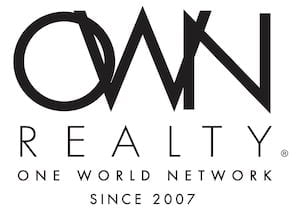1031 Exchange in Michigan
- Home
- 1031 Exchange in Michigan
Considering A Tax Deferred 1031 Exchange in Michigan? We are here to help!
Navigating the 1031 Exchange Landscape in Michigan
In the realm of real estate transactions, the 1031 exchange stands out as a strategic financial maneuver, particularly for investors in Michigan. Commonly known as a tax-deferred exchange, it provides a streamlined approach to selling a qualified property and seamlessly acquiring another within a specified timeframe. While the process mirrors a conventional sale and purchase scenario, the key divergence lies in treating the entire transaction as an exchange, offering taxpayers the coveted qualification for deferred gain treatment.
This crucial distinction shields individuals from immediate IRS taxation, a privilege not afforded in standard property sales. The foundation of this strategic move is rooted in US CODE: Title 26, §1031, governing property exchanges held for productive use or investment.
Navigating the intricacies of Michigan’s real estate market requires a nuanced understanding of economic dynamics, market trends, and tax implications. The 1031 exchange, with its tax-deferral benefits, emerges as a powerful tool for investors seeking to capitalize on Michigan’s diverse and dynamic real estate opportunities.
Michigan, with its bustling cities, picturesque landscapes, and diverse economic sectors, presents a myriad of investment possibilities. From the urban allure of Detroit to the natural beauty of the Great Lakes, investors can tailor their real estate portfolios to align with their preferences and financial goals. The 1031 exchange becomes a strategic lever, allowing investors to transition seamlessly between different property types while preserving and growing their wealth.

To navigate the intricate landscape of a 1031 exchange in Michigan, it’s imperative to comprehend the underlying principles and elements of this tax-deferred transaction. The linchpin for success in executing a qualifying exchange is Section 1031 of the Internal Revenue Code.
Additionally, guidance is found in the Like-Kind Exchange Regulations issued by the US Department of the Treasury, outlining IRS interpretations, standards, regulations, and compliance rules. These regulations, while not exclusive to the law, encapsulate the IRS’s perspective on Section 1031.
For real estate proprietors and investors in Michigan, the 1031 exchange emerges as more than a tax strategy; it signifies an IRS-recognized approach to postponing capital gains taxes.
Mastery of the intricacies and core objectives of this financial move is pivotal. Section 1031 of the Internal Revenue Code becomes the compass, and adherence to widely accepted standards outlined in the Like-Kind Exchange Regulations becomes paramount.
In a state where economic revitalization is palpable, particularly in Detroit, investors can leverage the 1031 exchange to actively participate in the rejuvenation of urban areas. As cities undergo transformation and property values evolve, the flexibility provided by a 1031 exchange empowers investors to adapt their portfolios to the changing landscape.
Furthermore, Michigan’s economic diversity, spanning manufacturing, technology, healthcare, and more, adds layers of complexity and opportunity to the real estate market. Investors can strategically utilize the 1031 exchange to pivot between sectors, capitalizing on the strengths of each while mitigating risks.
Why Consider a 1031 Exchange in Michigan?
Delving into a 1031 exchange in Michigan becomes a strategic imperative for property owners and investors contemplating the acquisition of a replacement “like-kind” property post-sale. Neglecting this financial strategy exposes individuals to capital gains taxes, currently standing at 15% and potentially escalating to 20% in the future.
Beyond federal considerations, the interplay of state tax rates in Michigan is a crucial factor when executing a 1031 exchange. The driving force behind pursuing this strategic move lies in the IRS’s practice of depreciating capital real estate investments at a rate of 3% annually. Upon selling the capital asset, the IRS aims to tax the depreciated portion as income tax, levied at the marginal tax rate.
Consider a scenario where an investment property has been held for 15 years, subject to a 45% depreciation. The IRS then levies taxes on this 45% depreciation, with combined state and federal taxes reaching up to 35% at the marginal rate. This equates to approximately 15% of the property’s cost (one-third of the 45%).
If the property is fully depreciated, the entire 35% marginal tax rate applies. Without the benefit of a 1031 exchange, the purchasing power for a replacement property is diminished to 70-80% of its prior value, considering the exchange and tax payment.

The Significance of a 1031 Exchange:
In essence, the 1031 exchange in Michigan extends beyond tax deferral; it emerges as a dynamic financial tool for strategic wealth preservation and growth. As the intricate financial landscapes of Michigan continue to evolve, the 1031 exchange stands as a beacon, guiding investors toward astute decisions aligned with their financial goals.
In the rich tapestry of Michigan’s real estate opportunities, the 1031 exchange becomes a key instrument for investors to leverage the state’s dynamic market and shape their financial destinies.
As Michigan’s real estate sector evolves, the 1031 exchange takes on added significance, positioning itself as a pivotal instrument for investors navigating the dynamic market trends. Beyond the immediate benefits of tax deferral, investors engaging in a 1031 exchange gain a strategic edge in wealth preservation and growth.
The interplay of federal and state tax considerations in Michigan underscores the need for a well-informed approach to the 1031 exchange. As the tax landscape evolves, staying abreast of changes and aligning with the IRS’s guidelines ensures investors optimize their tax benefits and make informed decisions that resonate with the broader economic context of Michigan.
In conclusion, the 1031 exchange in Michigan is not just a tax strategy; it is a dynamic instrument for investors to navigate the multifaceted real estate landscape. As Michigan continues to redefine itself economically, investors can position themselves for success by harnessing the potential of the 1031 exchange, thereby contributing to the growth and vitality of the state’s real estate sector.
The intricate interplay of federal and state tax considerations underscores the importance of meticulous planning and execution when embarking on a 1031 exchange in Michigan. By aligning with the IRS’s guidelines and leveraging the state’s unique financial landscape, investors can optimize their property portfolios, ensuring long-term financial success in the vibrant real estate markets of Michigan.
Discover Your Path to Wealth Preservation
Power of 1031 Exchanges
Are you ready to embark on a financial journey that could reshape your real estate investments? Look no further! At Sapphire Investment Solutions, we specialize in turning the complex world of 1031 exchanges into a streamlined, wealth-building opportunity.


 Call us today:
Call us today: